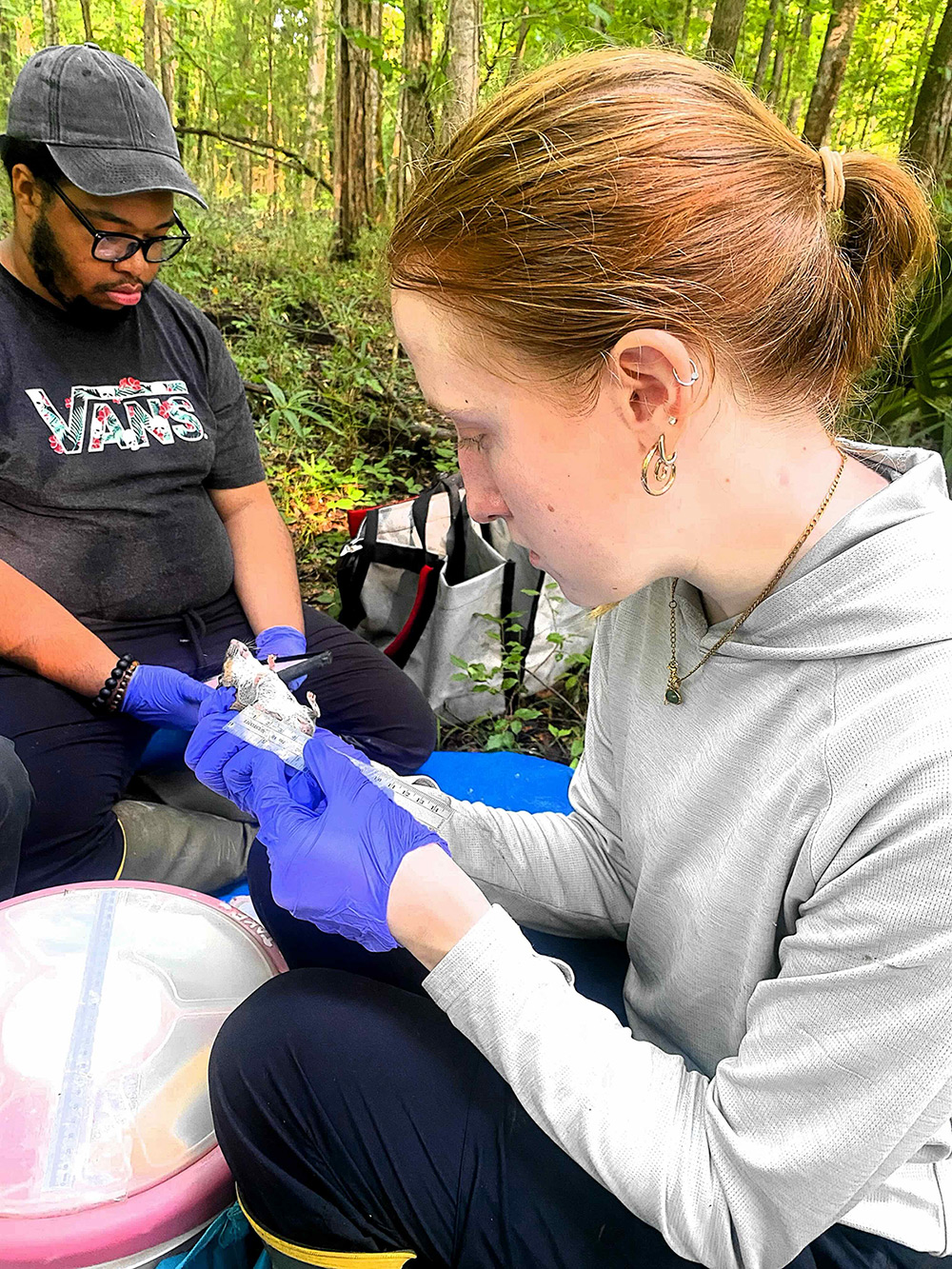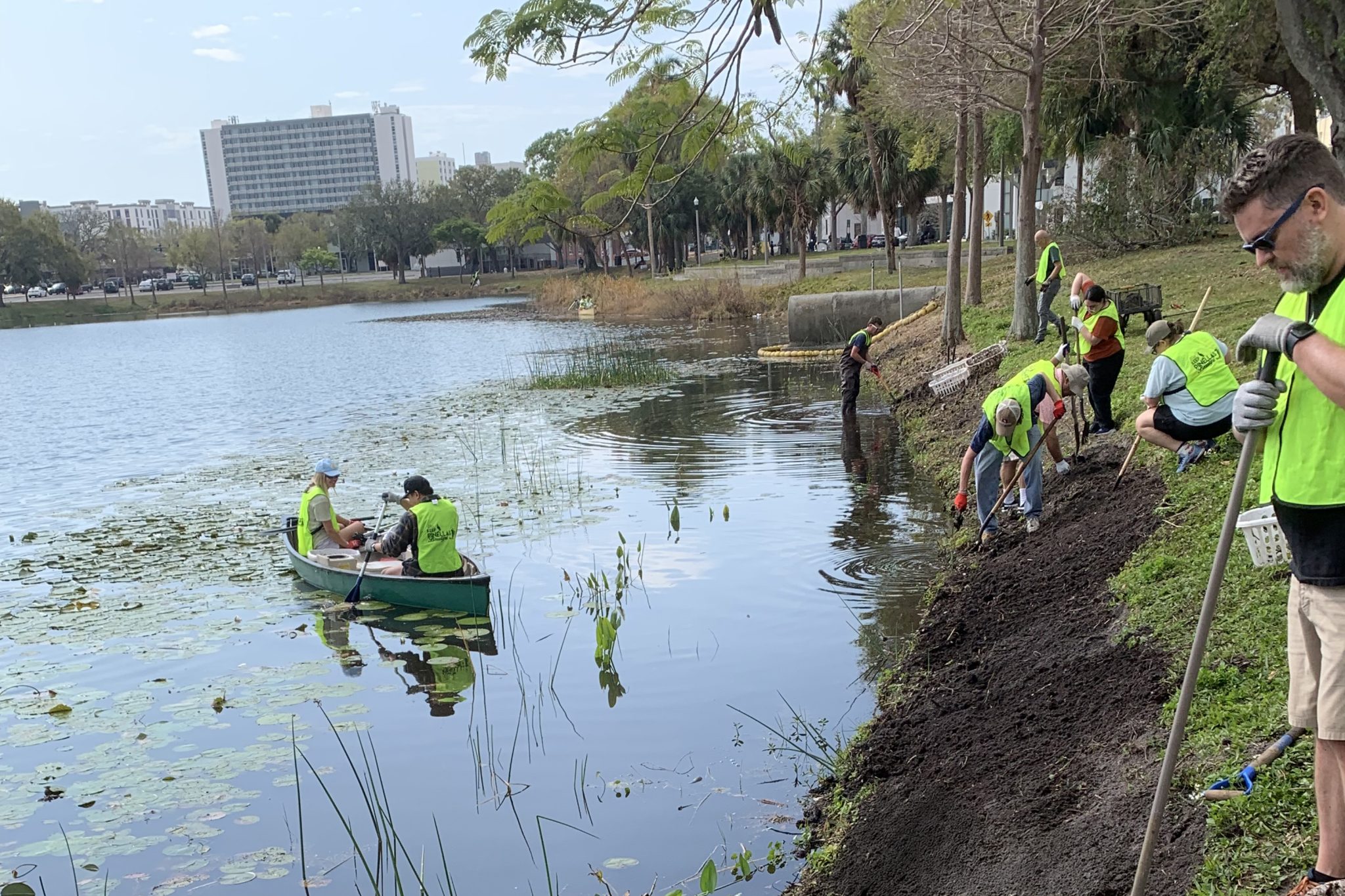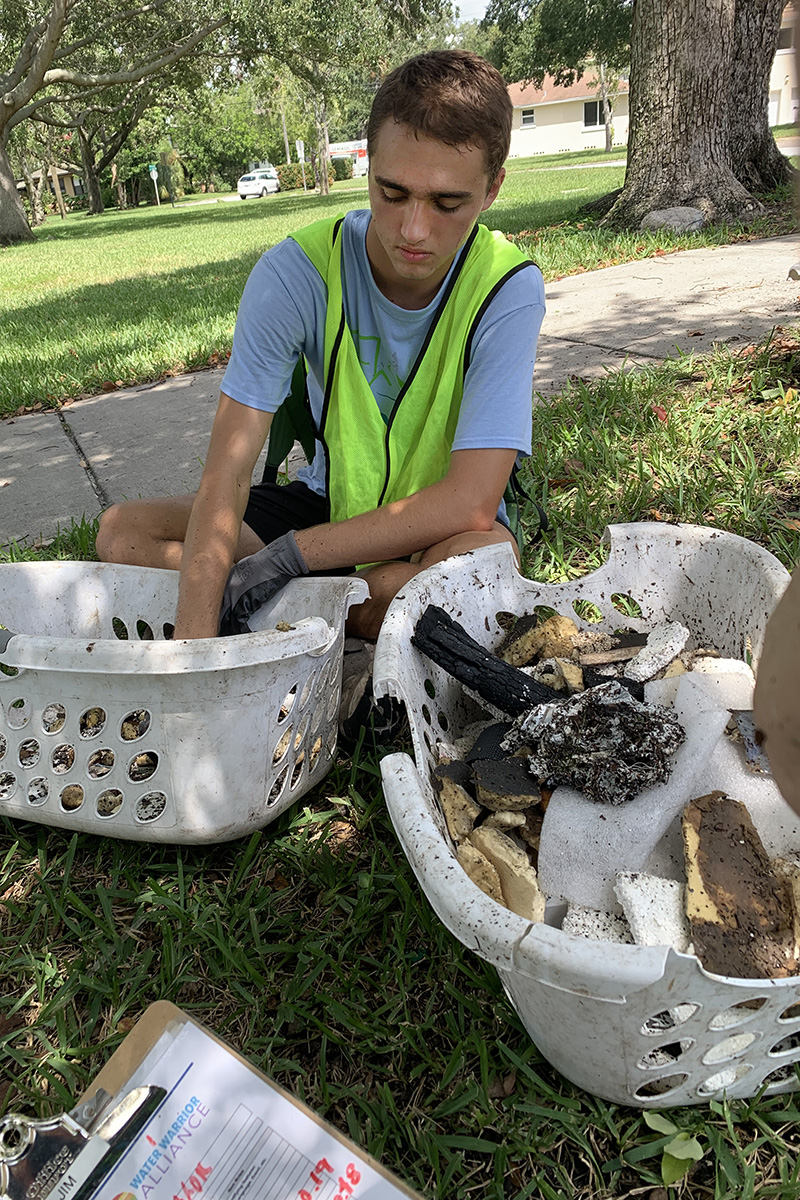Eckerd students and alumni alike are excited about the College’s new Bachelor of Science degree in environmental studies, which places greater emphasis on natural sciences, mathematics and computer science than the Bachelor of Arts in environmental studies does.
Many are thrilled about this degree option announced in February, because it may better align with students’ future academic or career goals.
The current discipline coordinator, Associate Professor of Environmental Studies Jesse Sherry, Ph.D., says faculty have received dozens of emails from students who hope to qualify for the B.S., and even from alumni who heard about the new program and wonder if they can retroactively change their degrees. Sherry laughs and says, “I don’t think that is gonna fly,” since you can’t get credit for finishing “a program that wasn’t in existence when you graduated. But that shows the level of interest and excitement that there is.”
The new program provides an advantage to students who intend to pursue a science-based graduate program or job postgraduation; whereas, Sherry’s field of policy and urban planning wouldn’t necessarily be benefited from a B.S., rather than a B.A., he says.
“We’ve always wanted to do this, and we’ve always had students that were interested,” Sherry says, but previously the state of the field was: You cannot earn a B.S. in environmental studies, and environmental science programs tended to be toxicology or public health focused—nearly medical-level training. Though there wasn’t a model for this degree program before, there is now, as other schools are offering a B.S. in the major.
Senior environmental studies student Laura Josler from Cleveland, Ohio, will earn her B.S. this May with a minor in biology. When Laura initially looked into colleges, she wanted a B.S. in environmental science but selected Eckerd due to its small class sizes and research opportunities. She tailored her courses to biology and the natural sciences, qualifying her for the B.S. now.
Students frequently travel abroad for environmental studies, such as this “Cultural and Natural Environments of the World” trip to Cuba with Associate Professor of Environmental Studies Jesse Sherry.
“These classes gave me a good starting point of knowledge and skills, which helped me to go out and get field-based work experience during my summers and have set me up to go into a stem-based graduate program in the future,” she says.
This summer and fall, Laura will work as an environmental restoration technician in Minnesota, and she plans to attend graduate school in the fall of 2026, pursuing a Master of Science in an environmental science or natural resources field. While she is unsure of her ultimate career goal, she’d love to do research or fieldwork and continue learning about ecosystems—how they’re impacted by climate change and possible restoration plans.
Signe Renstrom, a senior environmental studies and biology student from Boardman, Ohio, also will earn her Eckerd B.S. in May. She will begin her Master of Biology in the Ecology and Evolution Department at Florida State University in the fall.
She completed an internship in New Mexico a few summers ago, working with desert springs, which fueled an interest in freshwater ecology, she says. So in graduate school, she will work on a Florida springs project.
“[Florida springs are] pretty well known—I think—for tourism, but I feel like not many people appreciate how much they do,” she says.
Not only are Florida springs an economic driver for recreation and tourism, but, according to the Florida Department of Environmental Protection, they flow into Florida’s rivers, which are dependent on the springs’ clean water. Signe agrees with the Florida DEP about the benefits of and dangers to the water quality of Florida’s natural springs. Following her master’s program, she plans to earn her Ph.D. and become a professor of biology.
Both Laura and Signe have completed a minor or second major, as is required of all students majoring in environmental studies at Eckerd.
“Environmental studies is interdisciplinary and can be very broad,” Sherry explains, “and so we’ve always wanted people to have a specialization.”
This is where students find the key difference between the two undergraduate degrees: The minor or second major for the B.S. must be from the Natural Sciences Collegium—such as mathematics, chemistry or data science. Additionally, for a course to count toward the B.S., students must earn a C- or better in the course.
Students also must complete a 70-hour environmentally related internship for either degree, but as of now, there is no distinction between what fulfills the B.S. versus the B.A. requirement. Sherry suggests it would make sense for students to pursue an internship related to their interests.
“The whole point of the internship in the major is to give you some practical experience doing something that [will] contribute to your next step,” he says.
He hopes students receive the message that the B.S. isn’t universally better. For students more interested in social science, for example, the B.S. isn’t going to be a “big bonus,” and it might feel like drudgery if the student doesn’t find the required courses particularly exciting, Sherry says.
The B.S. isn’t better, he adds; it’s just focused on what science students find interesting.
















